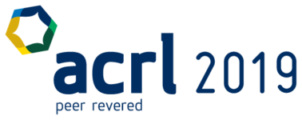Session Description:
Vocational awe describes the set of ideas, values, and assumptions librarians have about themselves and the profession that result in notions that libraries as institutions are inherently good and sacred, and therefore beyond critique. It is a term that openly exposes the exploitative nature of common rhetoric around librarianship and libraries, and allows for the opening up of what it means to be a good librarian. According to Deborah Hicks, the professional identity of a librarian transcends other non-professional identities, such as ones gender or race identity
(2016). Taken to its extreme, this means that the ideal librarian is one whose other identities are subsumed by the noble calling of library work to the exclusion, and even detriment, of anything else. Librarianship, as a field, also has an identity one tied to its purported values. A common rhetoric is that libraries, and librarianship, are the last bastions of democracy. Vocational awe permeates the narratives surrounding the ideal identities of librarians and librarianship. Because vocational awe also intersects with the problematic rhetoric of do what you love (Tokumitsu 2015), which enables the exploitation of librarians as workers by eliminating the distinction between personal and professional identities, librarianship cannot be critiqued without the critic being labeled a bad librarian. Indeed, vocational awe is threaded so tightly throughout the professional narrative of librarianship that it is weaponized against those who might highlight the ways librarianship has, does, (and inevitably will), flounder and fail in fulfilling its professed values. When there is immense resistance to merely acknowledging flaws in our professional values and practice, how can we work towards meaningful change? I argue: only through dismantling vocational awe and recasting the narrative of what it means to be a librarian. Sponsored by the Five Colleges of Ohio, Inc.
